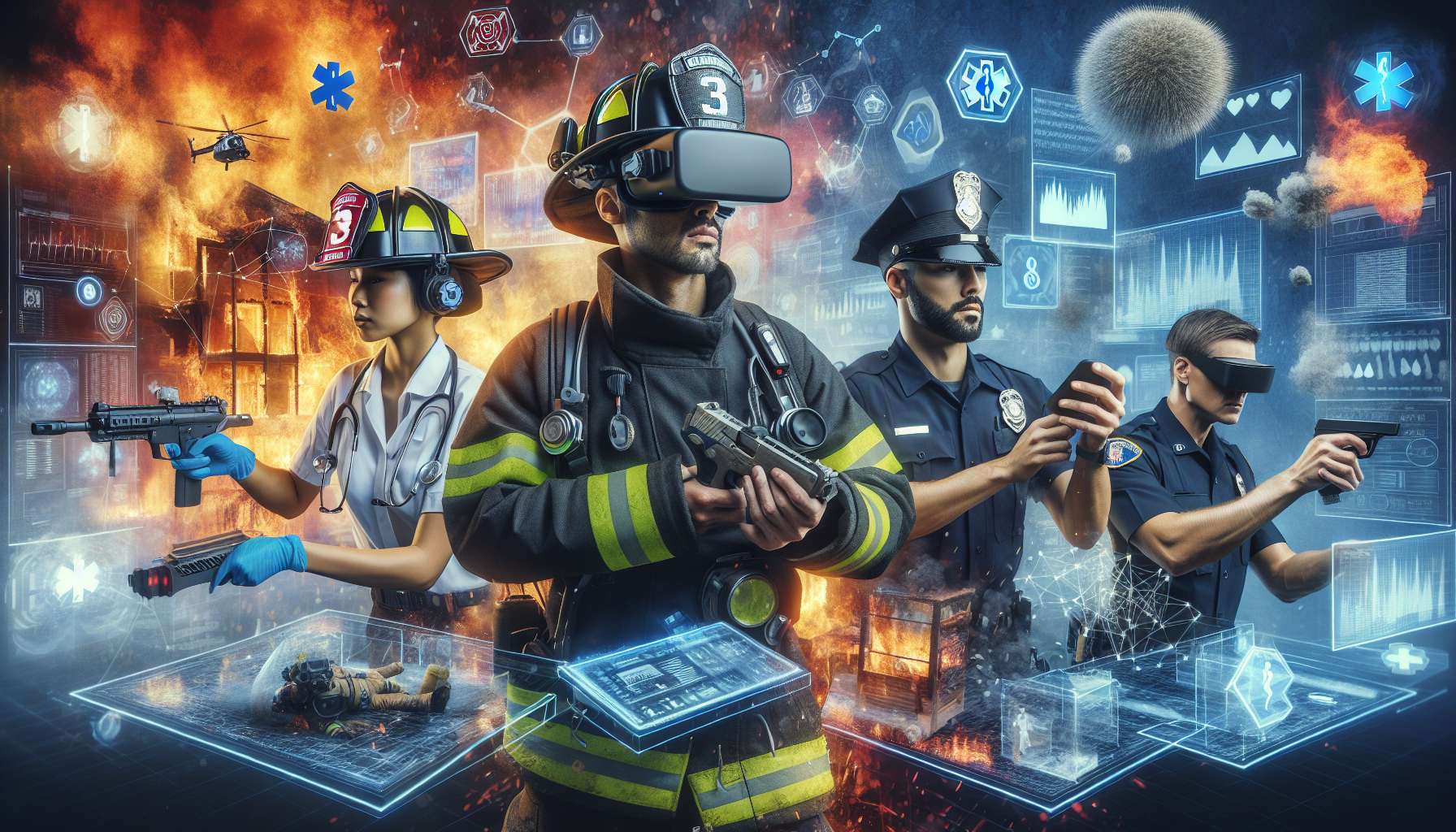The Future of First Responder Training: Immersive VR
First responders play a crucial role in emergency situations, often facing high-pressure scenarios where quick thinking and decisive action can mean the difference between life and death. Traditionally, first responder training has involved a combination of classroom instruction, hands-on exercises, and simulations. However, with the advancements in technology, a new and innovative approach to training is emerging – immersive virtual reality (VR) training.
What is Immersive VR Training?
Immersive VR training involves using virtual reality technology to create realistic simulations of emergency scenarios that first responders may encounter in the field. By donning a VR headset, trainees are transported to a virtual environment where they can practice their skills in a safe and controlled setting.
- Immersive VR training allows first responders to experience realistic scenarios, such as building fires, car accidents, or medical emergencies, in a controlled environment.
- Trainees can practice decision-making skills, communication techniques, and critical thinking under pressure.
- VR simulations can be customized to replicate specific challenges that first responders may face in their line of work.
The Benefits of Immersive VR Training for First Responders
There are several benefits to incorporating immersive VR training into first responder education programs:
- Realistic simulations: VR technology can create highly realistic scenarios that closely mimic real-life emergencies, providing trainees with valuable hands-on experience.
- Safe learning environment: Trainees can make mistakes and learn from them without any real-world consequences, helping to build confidence and competence.
- Cost-effective: While traditional training methods can be expensive and time-consuming, VR training offers a more cost-effective solution that can be easily scaled and repeated.
- Remote training: VR technology allows first responders to train from anywhere, reducing the need for in-person training sessions and accommodating busy schedules.
The Future of First Responder Training
As technology continues to advance, the potential for immersive VR training in the field of first responder education is vast. By harnessing the power of virtual reality, we can better prepare our first responders for the challenges they may face on the job, ultimately improving emergency response times and outcomes.
Immersive VR training is not meant to replace traditional training methods but rather enhance them, providing a valuable tool for first responders to hone their skills and stay prepared for whatever may come their way.








